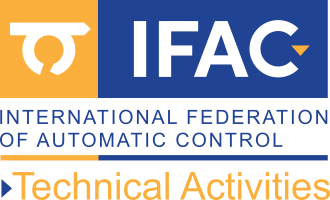Workplan

WORK PLAN
1. A Vision of the Future
The TC Marine Systems will continue to actively foster the organization of events in the general area of marine systems design, development, and applications. At the same time, it will strive to bring together key academic and industrial practitioners for discussions and demonstrations of recent advances in navigation, guidance and control of marine systems and to provide fora for a fruitful exchange of theoretical and practical knowledge on marine-relate technological issues.
Spawned by fast paced developments in the area, special attention will be given to a number of challenging problems that include navigation, guidance, and control of multiple robotic marine platforms and systems, including autonomous surface and underwater vehicles acting in cooperation towards the execution of advanced scientific and commercial missions at sea. In parallel, the TC will foster the dissemination of results and techniques and support the organization of events focusing on the use of new tools for offshore systems modelling and control, as well as ship modelling, stabilization, and maneuvering. Applications will be sought in such diverse areas as underwater archaeology, harbour security and protection, safe maritime transportation, marine biology and marine oceanography, marine geology, and fisheries. Finally, exploratory steps will be taken towards the organization of events on a number of topics that stand at the crossroads of marine technology and marine science, namely in what regards biologically inspired locomotion and navigation.
2. Workshop Organization
Currently, the TC Marine Systems sponsors three major events: CAMS, MCMC, and NGCUV, that take place every 3 years (unless there is a conflict wit the IFAC World Congress Year). In a regular schedule, this entails the organization of NGCUV and MCMC in the same year. The CAMS event usually occurs isolated. It is felt that there is a need to complement CAMS with another event, which should probably become a workshop, addressing issues that touch upon science, commercial applications, and technology. This is currently being debated with the TC. One possible option is to bring together science, commercial applications, and technology in the scope of the very actual theme of cooperative marine vehicle navigation and control of multiple heterogeneous platforms.
3. TC membership
Currently, the TC includes 68 members from the following 24 countries: Australia, Bulgaria, Brazil, China, Colombia, Croatia, Denmark, Finland, France, Germany, Ireland, Italy, Japan, Korea, Malaysia, Netherlands, Norway, Pakistan, Poland, Portugal, Spain, Turkey, United Kingdom, and the USA. Of these, nine (Australia, Brazil, China, Colombia, Japan, Korea, Malaysia, Pakistan, and the USA) are outside Europe. There is definitely a need to attract members from other countries (and especially from other continents) where groups with recognized expertise in the Marine Systems area have been identified. To this effect, the TC will seek to attract members from other countries not yet represented.

